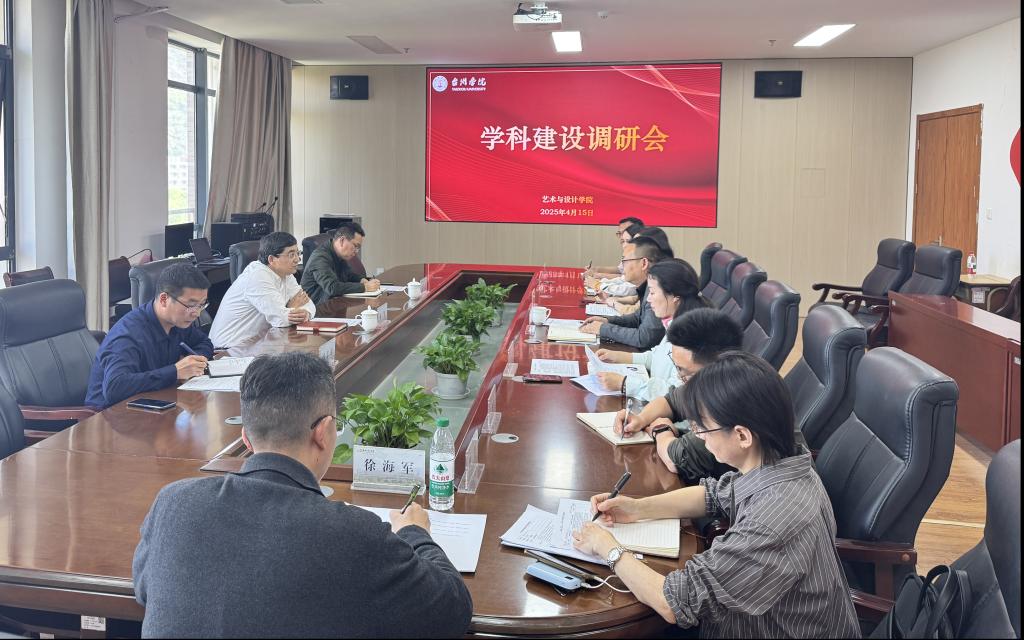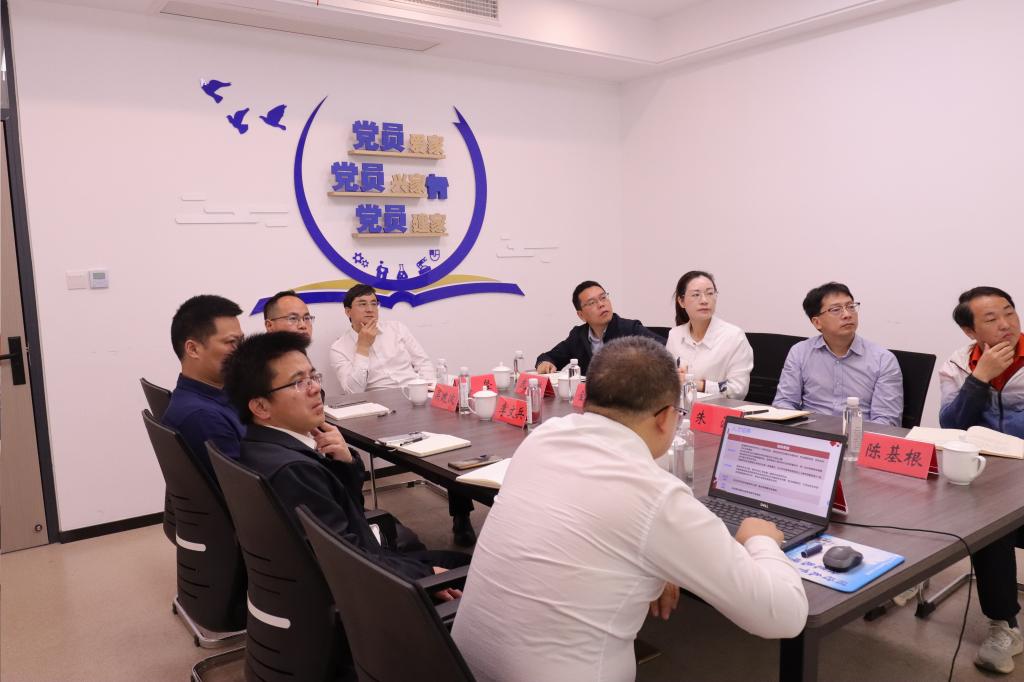Zhu Jian, Party Secretary of TU, conducted a two-day inspection tour on April 15 and 17 at the School of Arts and Design and the School of Materials Science and Engineering, outlining strategic priorities for academic discipline development to advance the institution’s dual goals of elevating its university status and securing doctoral program accreditation.
During the visits, Zhu Jian emphasized that discipline development must enhance core competitiveness through systematic planning and resource integration, focusing on talent cultivation, scientific research, and societal impact. Zhu stated that disciplines must cultivate distinctive strengths, deepen industry integration, and adopt flexible mechanisms to achieve irreplaceable value in a competitive landscape. He urged a forward-looking approach that aligned with national strategies and regional industrial needs to support Taizhou’s economic growth.
Zhu outlined three strategic imperatives for disciplinary advancement:
1. Strategic Planning: Directional Anchoring & Demand-Oriented Development
Align with national educational priorities and address critical needs in Taizhou’s “Five Cities and Ten Chains” industrial ecosystem. Prioritize application-oriented disciplines that interface closely with regional pillar industries. Establish a coordinated “Discipline-Program-Industry” linkage mechanism to ensure disciplinary development synchronizes with local economic growth. Focus on cultivating specialized, high-impact discipline clusters rather than pursuing superficial comprehensiveness.
2. Capacity Building: Foundation Strengthening & Bottleneck Breakthroughs
Implement the “Disciplinary Ascent Initiative” featuring precision talent recruitment and performance-based resource allocation. Develop dynamic monitoring systems for longitudinal and cross-disciplinary evaluation to drive sustained quality improvement.
3. Innovation Ecosystem: Interdisciplinary Integration & Institutional Reform
Leverage emerging opportunities in New Engineering, New Liberal Arts, and New Medical Sciences. Pioneer “Interdisciplinary Innovation Zones” focusing on AI, new materials, clean energy, and health sciences. Establish university-industry “Innovation Consortia” and pilot sustainable evaluation mechanisms. Foster an innovation ecology characterized by application-driven research, disciplinary convergence, and iterative advancement.
Zhu concluded by defining success metrics: disciplines must become indispensable to regional development, earn industry recognition, and achieve international visibility. He urged the university community to implement these measures with unwavering commitment, using disciplinary breakthroughs as catalysts to transform the institution from a follower to a leader in higher education.

Inspecting the School of Arts and Design

Inspecting the School of Materials Science and Engineering
Deans from the School of Arts and Design and the School of Materials Science and Engineering presented their discipline-building strategies, challenges, and resource needs. Faculty members brainstormed interdisciplinary collaboration models during breakout sessions.
The inspections were attended by university office directors, heads of research and discipline development departments, and faculty representatives from both schools.